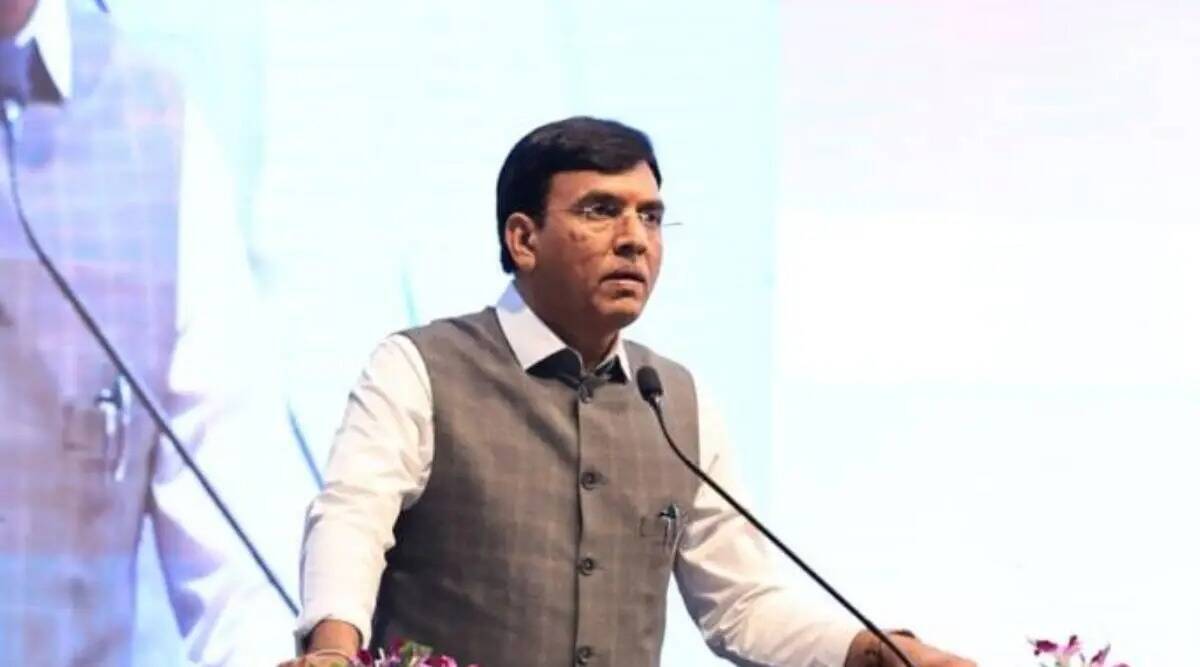All subsidised fertilisers, including Urea and DAP (Diammonium phosphate), will be sold from October under a single brand name — “Bharat” — as part of the Centre’s ‘One Nation, One Fertiliser’ initiative, Chemicals and Fertilisers Minister Mansukh Mandaviya said on Saturday.
Mandaviya said the initiative is aimed at ensuring timely supply of fertiliser to farmers, bringing uniformity in supply, and reducing subsidy burden in terms of higher freight charges.
As of now, there is a crisscross movement of fertiliser due to brand preference in different parts of the country, he said.
Citing example of such movement, Mandaviya said fertiliser manufactured by Indian Farmers Fertiliser Cooperative Limited (IFFCO) and Krishak Bharati Cooperative Limited (KRIBHCO) in Uttar Pradesh are sent to Rajasthan, while nutrients made by Chambal Fertilisers are sold in UP. Similarly, IFFCO/KRIBHCO fertiliser from UP are sold in Madhya Pradesh, and those manufactured by National Fertilizers Limited in MP are sold in UP, he said.
This, Mandaviya said, leads to an increase in freight subsidy. “One Nation, One Fertiliser will stop crisscross movement of fertiliser for longer distances. It will reduce logistics cost and also ensure availability throughout the year,” he said.
Besides, it also results in higher “average lead” (distance of a fertiliser bag from source to destination), which the government aims to bring down, he said. Mandaviya said the average lead was 900-1000 km before 2019, which came down to 850-900 km in 2019-20, and 700-750 km in 2020-21. Now the government aims to bring down the average lead below 500 km by implementing the One Nation, One Fertiliser initiative, he said.
This will save freight subsidy, which is in the range of Rs 6,000 crore to Rs 9,000 crore, the minister said. He said the average subsidy for movement of 1 lakh metric tonnes of fertiliser has come down from Rs 19.03 crore in 2019-20 to Rs 11.59 crore in 2020-21.
The One Nation, One Fertiliser initiative is part of the Centre’s fertiliser subsidy scheme Pradhanmantri Bhartiya Janurvarak Pariyojna (PMBJP). As part of this, the government also plans to set up Pradhan Mantri Kisan Samridhi Kendra (PMKSK), which will serve as a one-stop centre for farmers to access services such as soil health tests, he said.
Sharing details of the subsidy, Mandaviya said the government’s current subsidy accounts for 80 per cent of the price of a urea bag, 65 per cent of DAP bag, 55 per cent of NPK [Nitrogen (N), Phosphorous(P) and Potassium (K)] and 31 per cent of MoP (Muriate of Potash).
Newsletter | Click to get the day’s best explainers in your inbox
Under the new initiative, the amount of subsidy being given by the government and the price payable by farmers will be mentioned on each bag of subsidised fertiliser. According to ministry officials, one-third of the bag’s front side space is currently earmarked for companies to write their name and place their logo; the remaining two-third space will be used to give details of the subsidy scheme.
Mandaviya said the current subsidy bill is estimated to reach Rs 2.25 lakh crore in 2022-23, which will be higher than last year’s figure of Rs 1.62 lakh crore.

